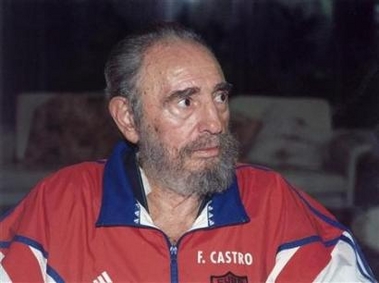Castro recovery slow: Chavez
(Reuters)Updated: 2007-01-17 16:25
QUITO - Fidel Castro's recovery from surgery is slow and has risks, his close ally Venezuelan President Hugo Chavez said on Tuesday, but he denied a Spanish newspaper report the Cuban leader's condition was serious.
|
|
Spain's El Pais newspaper reported that Castro, suffering from diverticulitis or bulges in the large intestine, decided to avoid a colostomy and opt for riskier surgery that led to serious complications.
The shortcut involved sewing the colon to the rectum but the incisions did not heal properly and broke apart, releasing gastric fluid with feces that caused serious infection, El Pais said in its Wednesday edition, posted on its Web site.
The newspaper reported a day earlier that the 80-year-old leader's prognosis was "very serious" after three failed operations. It cited sources at a Madrid hospital where a surgeon who examined Castro in late December works.
A colostomy, the usual procedure for diverticulitis after removing part of the intestine, is an opening in the abdomen to release stool into an external bag. A second operation is required to rejoin the intestine.
"Castro and his entourage, according to medical sources close to the case, rejected this approach because they considered it uncomfortable and did not want him to undergo a second operation," El Pais said.
The advantage of the shorter procedure was that Castro could have been back on his feet within days if it had worked, the paper said. Instead, he suffered a second peritonitis, or infection, requiring two further operations, it added.
Castro, who has led Cuba since 1959, has not been seen in public since July, fueling speculation he is so ill he may never return to power.
Chavez accused the United States of being behind false reports exaggerating the illness, which has forced Castro to temporarily hand power over to his brother on the communist-run island. "The empire (the United States) is bent on killing off Fidel Castro," Chavez said.
"I'm not a doctor. I'm not at Fidel's bedside but he's not in a serious condition as some say, nor does he have cancer," Chavez told reporters during a visit to Ecuador.
"He said (to me) it's a slow recovery process not without risk. He's 80 years old," Chavez added, referring to a telephone chat with Castro about a week ago.
US doctors said the El Pais report on Tuesday suggested Castro had received questionable or even botched care.
"I think the prognosis is very grave at this point," said Dr. Roshini Rajapaksa, a gastroenterologist at New York University Medical center and assistant professor at the NYU School of Medicine.
Yet a Spanish doctor who examined Castro in December stood by his opinion Castro is recovering despite the El Pais report. Surgeon Jose Luis Garcia Sabrido has not changed his prognosis, his secretary told Reuters on Tuesday.
Cuban officials have declined to comment on the latest media reports of Castro's health. His illness is being treated as a state secret.
In a New Year's message issued on December 30, Castro told Cubans he was recovering slowly from surgery and said his recovery was "far from being a lost battle."
A US official who spoke on condition of anonymity on Tuesday said that whether the El Pais report is accurate or not, it was noteworthy that the government had dealt with his absence.
"This doesn't change the picture. The man's condition is still serious," the official said. "He has not reappeared and their system is coping with that and that's the real story."
|
||
|
||
|
|

